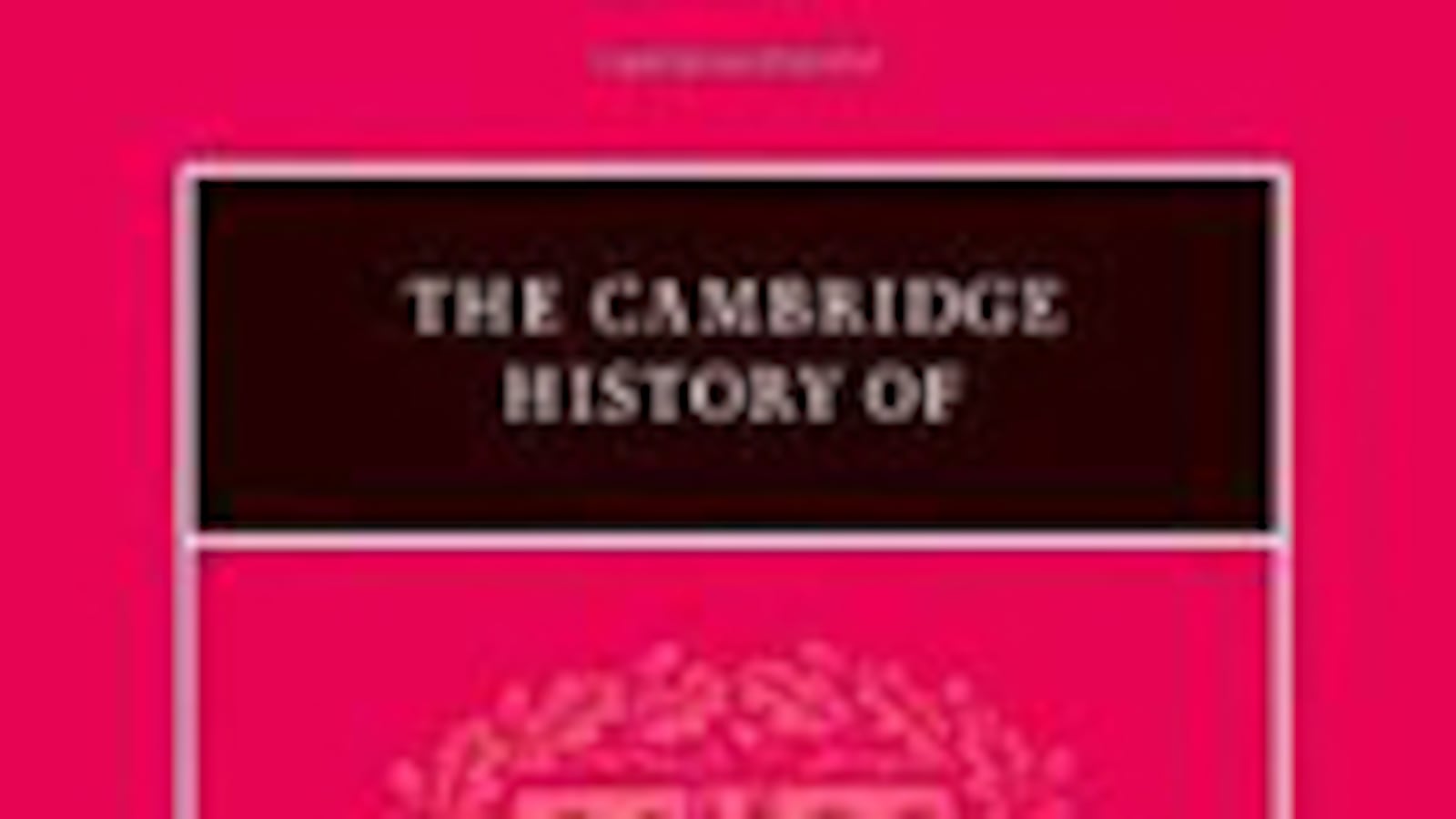
What Is the History of English Poetry?
There are more than 1,000 pages in The Cambridge History of English Poetry but no places for Walter Savage Landor, the “brilliant epigrammatist” whom Clive Wilmer deems “perhaps the finest of the 19th century”; nor for Arthur Golding, Charles Wesley, Ivor Gurney, C.H. Sisson; nor even for the results of John Keats' first look inside Chapman's Homer.
Wilmer is not most worried by these absences, recognizing that not even a history as lengthy as this “can include every short poem of importance.” He is concerned, however, that it lacks “a historical discipline” and is not therefore a history at all. The art of translation, he argues, in a familiar instance of the policy of the English, is treated particularly poorly. Ezra Pound, poet in exile and traveler in Keats' “realms of gold”, had the best explanation and answer to that: "Histories of English literature always slide over translation. I suppose it is inferiority complex yet some of the best books in English are translations. After [the Anglo-Saxon] period English literature lives on translation, it is fed by translation; every new exuberance, every new heave is stimulated by translation, every allegedly great age is an age of translations, beginning with Geoffrey Chaucer, Le Grand Translateur, translator of the 'Romaunt of the Rose,' paraphraser of Virgil and Ovid, condenser of old stories he had found in Latin, French, and Italian."
This Cambridge History, writes Wilmer, continually calls to mind a book that takes the opposite stand on virtually everything: Paul Keegan’s inspired anthology, The New Penguin Book of English Verse (2000). It is obvious to Keegan that without Golding’s Ovid, Dryden’s Virgil, Pope’s Homer, Rossetti’s Early Italian Poets, or the Tudor translations of Petrarch, without the many versions and versifications of the Bible’s poetic books, or the imitations of Juvenal, Omar Khayyám, and Propertius by Samuel Johnson, Edward FitzGerald and Ezra Pound, English poetry would be a sparser thing than it triumphantly is. The evidence is there for all to read in Keats' sonnet.

Whither English?
The dominance of English today as the language of business, science, and popular entertainment appears unassailed and perhaps unassailable, writes Kerstin Hoge. For the linguist David Crystal, it is entirely plausible that “English, in some shape or form, will find itself in the service of the world community for ever.” But “in his new, engaging and learned book,” The Last Lingua Franca, Nicholas Ostler challenges this widespread confidence in the continued future of English as the dominant global language, and, more radically, questions whether there will be any need at all for a single language of international communication “in a world where digital technology is cheap and ubiquitous.”
Acknowledging the unparalleled geographical expanse of English, Ostler draws a firm distinction between English as a mother tongue and English as a lingua franca or communicative tool for non-native speakers. This distinction motivates two separate questions concerning the future of English. First, will English, given its spread as a native language, split into a range of separate languages akin to the development of Latin into the Romance languages? Second, will it continue to be a widely used lingua franca, possibly even increase its influence? Ostler’s answer to both of these questions is a resolute no.
Along the Edges
Sean O'Brien writes in praise of the English “edgelands,” for the most part the zone of the in-between, places neither urban nor rural, often marked by desire paths, dead cars, and hawthorn trees. "They are likely to have an industrial history but they may also simply be places where suburbs have run out of steam and money. They escape inclusion in plans, or have been included but have managed to sustain a sense of difference despite the planners’ intentions.”
Reviewing a new book by the British poets Paul Farley and Michael Symmons Roberts, O'Brien predicts that at some point the powers that be will always come for “edgelands” and convert them for retail development or a business park, but that on that day the edgelands will move further down the road and out of sight and somehow persist to undermine and complicate the new developments.
“In spirit, edgelands are untidy, improvised, accidental, secret and quite likely a risk to health. For many people of a certain age and background they are more real than the countryside to which the city dweller’s aspirations have long been directed. For one thing, edgelands are accessible; for another, it can seem, at least for a time, as if no one owns them. Bird watchers like edgelands, and so do children and criminals. Neither Tony Blair nor David Cameron would see the point of them.”
Peter Stothard's latest book is On the Spartacus Road: A Spectacular Journey Through Ancient Italy. He is also the author of Thirty Days, a Downing Street diary of his time with British Prime Minister Tony Blair during the Iraq War.






